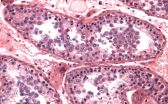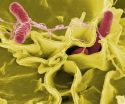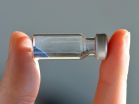Should scientists be allowed to genetically alter human embryos?
2015-07-01
(Press-News.org) Scientists have at their disposal a way to explore the possible prevention of genetic diseases before birth. But should they? Currently, the most promising path forward involves editing the genes of human embryos, a procedure rife with controversy. An article in Chemical & Engineering News (C&EN), the weekly newsmagazine of the American Chemical Society, parses the explosive issue.
Britt E. Erickson, a senior editor at C&EN, reports that at least one team of scientists has already published a study on altering disease-related genes of human embryos. The experiment was largely unsuccessful, but it stoked fears that such research on embryos could lead to potentially dangerous or unethical applications. Would parents start demanding designer babies engineered to be smarter or more attractive? What would be the long-term consequences of changing people's genes before they're born?
Without answers yet to these critical questions and others, many European countries have banned gene editing of human reproductive cells. In the U.S. -- where federal dollars cannot go toward this type of work -- and in China, scientists are allowed to pursue this type of research. But the landscape is likely going to change as scientists, ethicists and lawmakers hash out a path forward.
INFORMATION:
The American Chemical Society is a nonprofit organization chartered by the U.S. Congress. With more than 158,000 members, ACS is the world's largest scientific society and a global leader in providing access to chemistry-related research through its multiple databases, peer-reviewed journals and scientific conferences. Its main offices are in Washington, D.C., and Columbus, Ohio.
To automatically receive news releases from the American Chemical Society, contact newsroom@acs.org.
Follow us: Twitter Facebook
ELSE PRESS RELEASES FROM THIS DATE:
2015-07-01
In the most severe form of male infertility, men do not make any measurable levels of sperm. This condition, called azoospermia, affects approximately 1 percent of the male population and is responsible for about a sixth of cases of male infertility.
Oftentimes men with azoospermia don't know the underlying cause of their condition. But new research led by University of Pennsylvania scientists suggests that mutations in an X chromosome gene called TEX11 are responsible for a significant number of cases of infertility -- an estimated 1 percent of cases of non-obstructive ...
2015-07-01
Complex magnetic structures are at the heart of promising new materials for devices in "spintronics", a field of research aiming at more energy efficient data storage and processing. A prominent example is the so-called spin valve, where the magnitude of the electrical current passing through a device is very sensitively dependent on its magnetic configuration. These configurations can be readily controlled by a magnetic field in artificial layer systems, resulting in the giant magnetoresistance effect (GMR), a discovery rewarded with the 2007 Noble price in physics to ...
2015-07-01
College Park, Md. -- Extreme heat and precipitation events, which are expected to increase in frequency and intensity due to climate change, are associated with increased risk of Salmonella infections, according to a study led by researchers from the University of Maryland School of Public Health. The study is the first to provide empirical evidence that Salmonella infections related to extreme weather events are disproportionately impacting those living in the coastal areas of Maryland.
"We found that extremely hot days and periods of extreme rainfall are contributing ...
2015-07-01
When ecologists gather in Baltimore, Md., this August for the 100th Annual Meeting of the Ecological Society of America, special attention will fall on the local Chesapeake Bay watershed, with field trips and research presentations exploring its rich wildlife and social history. At symposia, poster exhibits, and site visits, ecologists will have opportunities to discuss the latest research and experiences working with stakeholders in the region to improve the health of the nation's largest estuary.
Chesapeake Bay bears a heavy pollution burden from the growing metropolitan ...
2015-07-01
PHILADELPHIA - Despite findings of previous studies and published guidelines, nearly two-thirds of patients with T4a larynx ("voice box") cancer are not receiving a total laryngectomy (surgical removal of the larynx), the recommended form of treatment, and as a result, have significantly worse survival rates versus those treated with a total laryngectomy, a new study published in the International Journal of Radiation Oncology, Biology and Physics by experts at Penn Medicine found. Patients who underwent a laryngectomy, on average, lived nearly two years longer than those ...
2015-07-01
From today (1 July 2015) The BMJ requires sharing of individual patient data for all clinical trials.
This means that trials will be considered for publication only if the authors agree to make the relevant anonymised patient level data available on reasonable request.
The BMJ is the first general medical journal to require data sharing for all trials, extending its initial policy on sharing data for trials of drugs or devices, which took effect in January 2013, says Elizabeth Loder, The BMJ's acting head of research.
In an editorial to mark the launch of the new ...
2015-07-01
The stress hormone cortisol strengthens memories of scary experiences. However, it is effective not only while the memory is being formed for the first time, but also later when people look back at an experience while the memory reconsolidates. This has been published by cognition psychologists from the Ruhr-Universität Bochum in the journal "Neuropsychopharmacology". They suggest that the results might explain the persistence of strong emotional memories occurring in anxiety and Post-Traumatic Stress Disorder (PTSD).
Memories of emotional experiences usually fade ...
2015-07-01
Thin fibers play a tremendous role in many areas of our daily life, from the use of glass fibers in ultra-fast data transmission to textile fibers in our clothing. In order to enable special properties of these fibers, they are often coated with a thin liquid layer that is supposed to be stable and homogeneous. However, for the production of drinkable water, the exact opposite features are desired: there, one aims at harvesting water, which is transported along the fiber as a liquid film or as liquid droplets, from fog. Now, scientists have been able to reveal, by means ...
2015-07-01
This news release is available in German. Observing time at the European Southern Observatory (ESO) on Paranal Mountain is a very precious commodity - and yet the Very Large Telescope (VLT) in Chile spent an entire night with a high-resolution infrared camera pointed at a single object in the night sky. The data collected by the Naco optics instrument enabled an international team headed by ETH Zurich's Sascha Quanz to confirm its earlier hypothesis: that a young gas planet - presumed not unlike Jupiter in our own solar system - is orbiting the star designated HD 100546.
At ...
2015-07-01
This news release is available in German.
A new bio-inspired zeolite catalyst, developed by an international team with researchers from Technische Universität München (TUM), Eindhoven University of Technology and University of Amsterdam, might pave the way to small scale 'gas-to-liquid' technologies converting natural gas to fuels and starting materials for the chemical industry. Investigating the mechanism of the selective oxidation of methane to methanol they identified a trinuclear copper-oxo-cluster as the active center inside the zeolite micropores.
In ...
LAST 30 PRESS RELEASES:
[Press-News.org] Should scientists be allowed to genetically alter human embryos?


